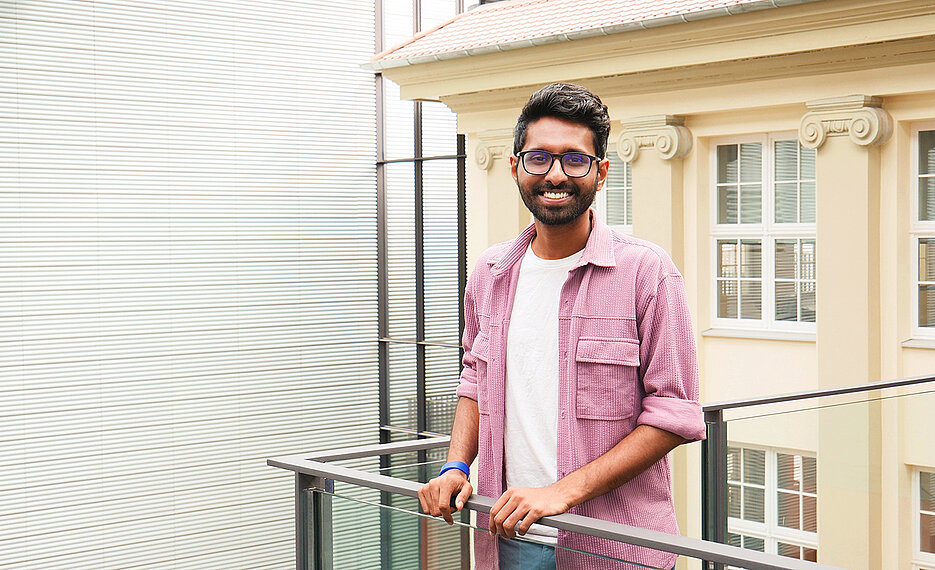Iron Keys to Cancer Cell Death
09/23/2025Dr. Hariharan Moorthy is investigating a special form of cell death that could enable innovative cancer therapies. An Alexander von Humboldt Fellowship allows him to conduct his research at the University of Würzburg.

“Cell biology gives us the opportunity to understand life at its most fundamental level, while chemistry allows us to manipulate these processes—together, their intersection in chemical biology opens entirely new ways of shaping biology.” That is what fascinates Dr. Hariharan Moorthy about the subject. For him, it feels like solving a puzzle in which every clue can lead to better treatment methods—especially for chronic diseases such as cancer.
Since April 2025, Moorthy has been conducting research in the working group of José Pedro Friedmann Angeli, Professor of Translational Cell Biology. His stay has now been extended by two years thanks to a fellowship from the Alexander von Humboldt Foundation. In addition to Friedmann Angeli, Hermann Schindelin, Professor of Biochemistry and Structural Biology, is also hosting him. Both professors work at the Rudolf Virchow Center for Integrative and Translational Bioimaging at Julius-Maximilians-Universität of Würzburg.
Ferroptosis: Unlocking Cancer Cells’ Self-Destruct Switch
The cell biology professor's research group is investigating ferroptosis. This special form of cell death is caused by the accumulation of oxidized lipids, which are water-insoluble molecules such as fats. It is linked to several pathological conditions, including cancer and neurodegeneration. The working group's goal is to induce targeted cell death in tumors and explore its potential for developing new cancer therapies.
The Humboldt Fellow's task is to map the proteins responsible for ferroptosis. “You can think of ferroptosis as the cell’s built-in self-destruct program. Our goal is to identify which proteins act as the ‘safety switches’ that keep this program from running. Once we have a map of these regulators, we can study how to switch them off in a targeted way,” explains the fellow.
More Precise and Effective Therapies against Cancer
By identifying new regulators, the research creates a ‘map’ of potential drug targets — like finding weak points in cancer’s defense system. This foundational knowledge can guide future cancer research and drug discovery, with the long-term goal of developing more precise and effective therapies.
This would even make it possible to combat stubborn tumor cells that are resistant to drugs. “Dr. Moorthy brings a distinct chemical mindset to our research on ferroptosis. His unique expertise and perspective make him a tremendous addition to our team and to the field,” says Friedmann Angeli.
About the Person
Born in Puducherry (India), Hariharan Moorthy studied chemistry at the Sri Sathya Sai Institute of Higher Learning. He completed his PhD in chemical biology at the Jawaharial Nehru Centre for Advanced Scientific Research in Bangalore. In his doctoral thesis, he focused on ferroptosis and its role in Alzheimer's disease to find a holistic approach to treating neurodegenerative diseases.
Contact
Dr. Hariharan Moorthy, Chair of Translational Cell Biology, Rudolf Virchow Center for Integrative and Translational Bioimaging, hariharan.moorthy@uni-wuerzburg.de






